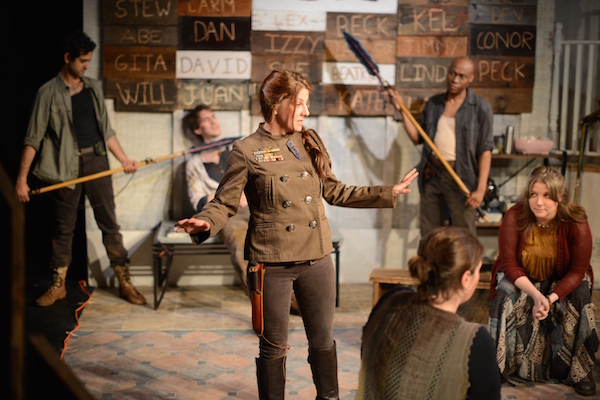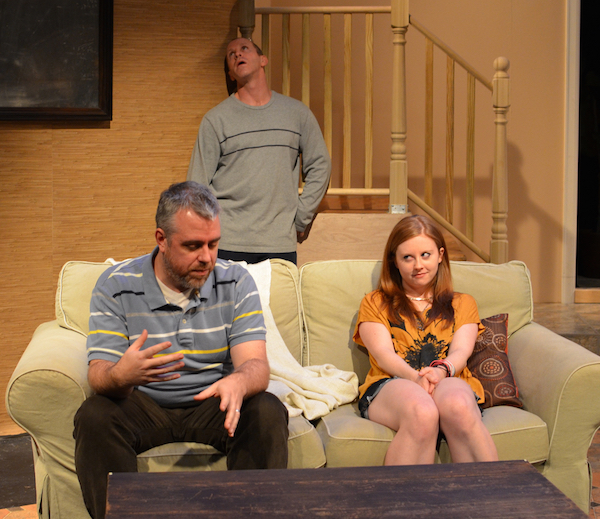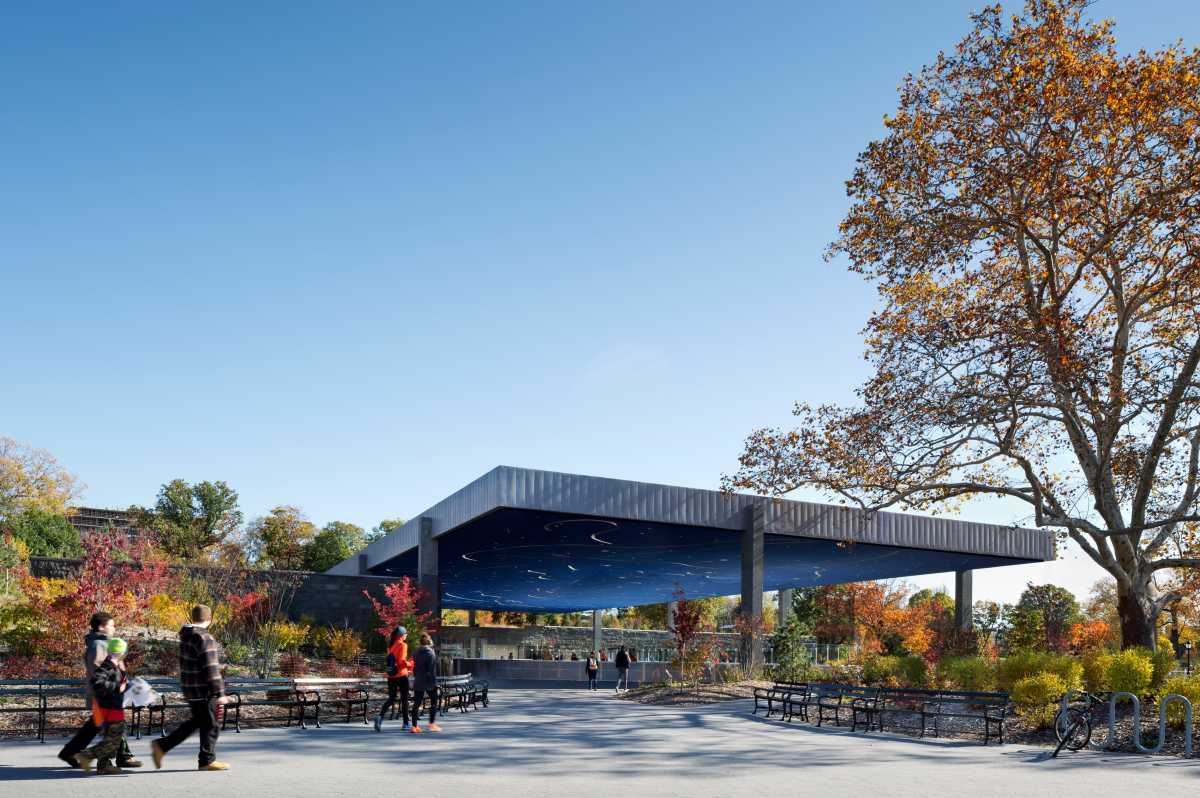
BY CHARLES BATTERSBY | Science fiction has been a part of theater history since the early 20th century. Even the first use of the word “robot” dates back to “R.U.R.” — a Czech play from 1920. Although these early works used their futuristic themes to address serious issues, modern sci-fi theater tends towards parody and camp. The upcoming “Honeycomb Trilogy” of plays by Gideon Productions bucks the trend of campiness, and instead takes an earnest and thoughtful look at life on Earth following an alien invasion.
The “Honeycomb Trilogy” consists of three full-length plays. “Advance Man” takes place in the near future, following the first manned mission to Mars. “Blast Radius” is set 12 years later in a world where mankind shares the Earth with aliens. The story is concluded in “Sovereign,” which takes place even further into the future as humanity struggles to create a new society after a devastating war.
The trilogy was performed in 2012, each play coming a few months after the previous. Audiences who enjoyed the first play had to wait six months to find out how the story ended, and people who missed the first two couldn’t catch up on the story when “Sovereign” rolled around. In its current run, the three shows are performed in repertory, including weekend marathons where audiences can see the entire trilogy in one sitting — with breaks for meals.
An epic interplanetary conflict might seem inherently unsuited to the intimate nature of theater, but playwright Mac Rogers explains how he addressed these concerns.
“Don’t try to imitate film, or television, or literature. Make it a theatrical experience. And one of the definitive theatrical styles is the Living Room Play,” he says. “How could you tell an entire story like this? Take the American Living Room play and explode it. Use it to tell a story of an epic, sweeping the whole world. The only way to make that work was to make that living room have three different functions over three different plays.”
That idea is realized by using the same basic living room set in all three plays. In the first play, it looks much like a modern living room. In the second, humanity has regressed to an unindustrialized state, which is reflected by the items in that same room. By the third show, the once-humble living room has become the throne room of a newly formed government.
The aliens are revealed to be massive insectoid creatures — too large to fit inside human houses, and therefore they never actually appear onstage.
“We don’t show very much of the invasion,” says the director of the trilogy, Jordana Williams. “Our sound designer creates an alien invasion through sound. There’s a little bit of lighting that’s happening, but you hopefully believe it from the sound and the actors believing it themselves.”
The only physical representation of the aliens ever seen on stage is a severed alien leg. This provides, as Rogers explains, “Just enough so that we can understand the scale of what we are talking about. By far the better representation of the aliens outside of the house is always going to be in how the actors are reacting to the idea that they are out there. Your best special effect in theater is always going to be human bodies. Actors’ faces and actors’ bodies.”

Sean Williams, the trilogy’s producer, who also plays a lead role in “Advance Man,” adds, “The most important thing that we don’t do, is that we don’t make light of the genre. When people talk about comic books, that is a word that is loaded for some people. They think it’s for children.” Jordana Williams points out, “There’s an assumption. When people hear about sci-fi plays, they think it’s going to be ‘Plan 9 From Outer Space.’ ”
Because the story takes place over 20 years, some of the roles are played by multiple actors. Ronnie, the leader of the human resistance, is played by Becky Byers as a teenager — but in the third play, she is portrayed by Hanna Cheek as a battle-scarred veteran. “Each show stands alone, remarkably well,” Cheek notes. “I love each of these plays, together as a whole and separately. They remind me that you never know just how far theater can go.”
Even though the onstage events are themselves epic, the cast and crew can still discuss in detail what happened in the intervening years that aren’t shown. Ms. Cheek recounts the unseen origin of her character’s limp, Sean Williams describes the meticulous timeline of the offstage war, and both Rogers and Jordana Williams explain the painstaking decisions in creating the alien leg. All of these efforts create a world as richly defined as what would be expected in science fiction cinema and literature.
“The Honeycomb Trilogy,” presented by Gideon Productions, runs through Nov. 14. Individual plays run Tues., Thurs. & Fri. at 8 p.m., and the whole trilogy runs Sat. & Sun. starting at 2 p.m. At The Gym at Judson (243 Thompson St., btw. W. Third St. & Washington Sq. South). For tickets ($25, $75 for marathon packages) and artist info, visit gideonth.com.




































